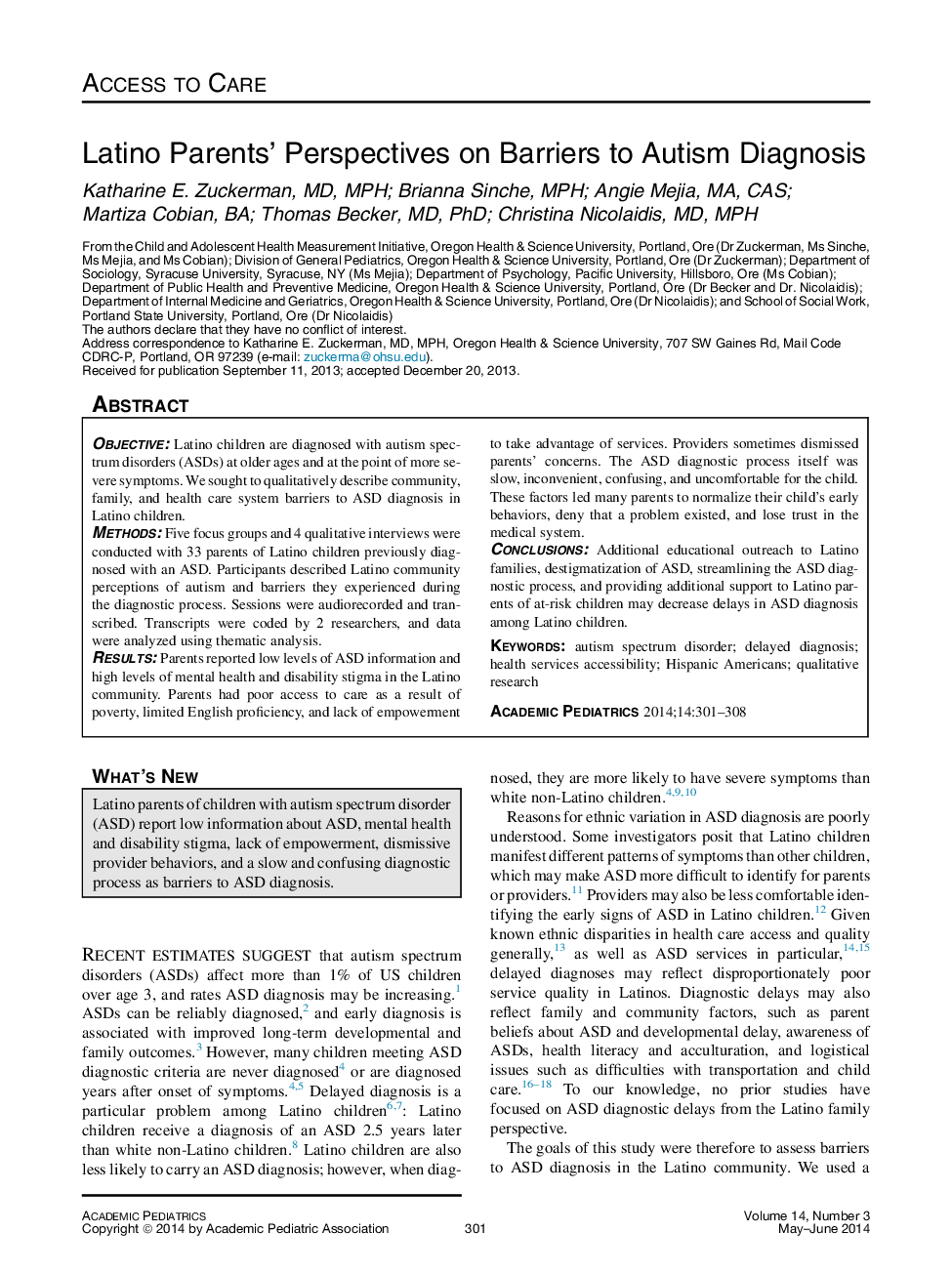| Article ID | Journal | Published Year | Pages | File Type |
|---|---|---|---|---|
| 4139374 | Academic Pediatrics | 2014 | 8 Pages |
ObjectiveLatino children are diagnosed with autism spectrum disorders (ASDs) at older ages and at the point of more severe symptoms. We sought to qualitatively describe community, family, and health care system barriers to ASD diagnosis in Latino children.MethodsFive focus groups and 4 qualitative interviews were conducted with 33 parents of Latino children previously diagnosed with an ASD. Participants described Latino community perceptions of autism and barriers they experienced during the diagnostic process. Sessions were audiorecorded and transcribed. Transcripts were coded by 2 researchers, and data were analyzed using thematic analysis.ResultsParents reported low levels of ASD information and high levels of mental health and disability stigma in the Latino community. Parents had poor access to care as a result of poverty, limited English proficiency, and lack of empowerment to take advantage of services. Providers sometimes dismissed parents' concerns. The ASD diagnostic process itself was slow, inconvenient, confusing, and uncomfortable for the child. These factors led many parents to normalize their child's early behaviors, deny that a problem existed, and lose trust in the medical system.ConclusionsAdditional educational outreach to Latino families, destigmatization of ASD, streamlining the ASD diagnostic process, and providing additional support to Latino parents of at-risk children may decrease delays in ASD diagnosis among Latino children.
